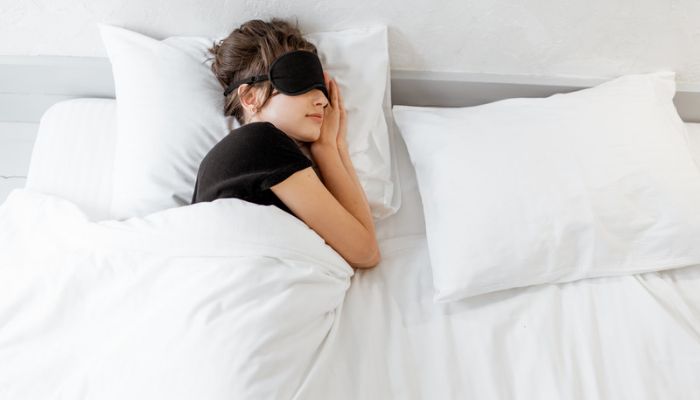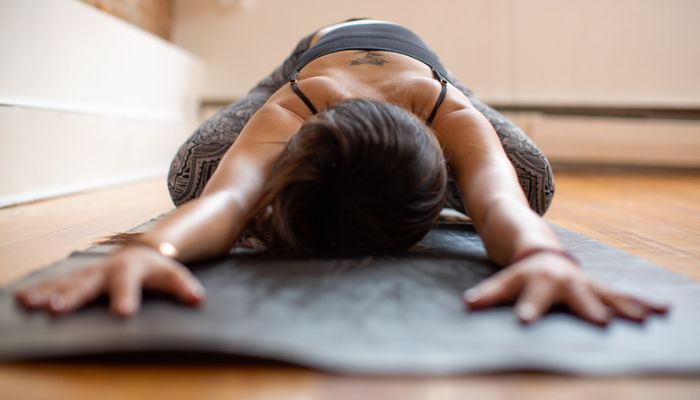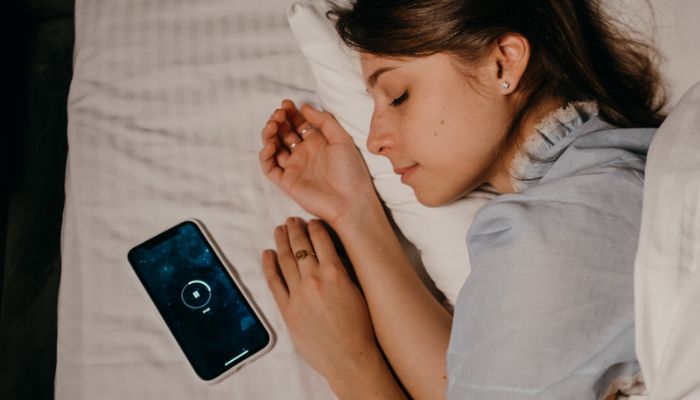Sleep, we just can’t get away from talking about it! We talk about it when we don’t get enough, we talk about it when we get too much, we talk about it during the day and at night. No matter who you are, sleep is always at the forefront of your mind. Lucky for us, sleep is an important and essential part of our everyday life – so we need to talk about it!
So what should you know about sleep?
Why is it important to get enough sleep?

Getting enough sleep is essential for maintaining good health and a positive mindset. Sleep is a restorative process that allows the body and brain to recover from the stresses of daily life. Why else is getting enough sleep essential?
- Physical health: Sleep helps to regulate many important bodily functions, including the immune system, metabolism, and cardiovascular health. Getting enough sleep can reduce the risk of developing chronic health conditions such as obesity, diabetes, and heart disease.
- Mental health: Adequate sleep helps to regulate mood, reduce stress and anxiety, and improve cognitive function, including memory and concentration.
- Performance: Sleep is critical for optimal performance in many areas of life, including work, school, and sports. Getting enough sleep can improve reaction time, decision-making, and creativity.
- Safety: Sleep deprivation can impair judgment and reaction time, increasing the risk of accidents and injuries.
What can you do to get better sleep?

So now you know why sleep is important to your everyday life, but how can you make sure that you’re getting the most out of it?
- Stick to a sleep schedule: Go to bed and wake up at the same time every day, even on weekends. This helps regulate your body's internal clock and improves the quality of your sleep.
- Create a sleep-conducive environment: Make sure your bedroom is dark, quiet, and cool. Use comfortable pillows and a supportive mattress to help you get comfortable.
- Avoid stimulants: Avoid caffeine, nicotine, and alcohol close to bedtime, as they can disrupt your sleep.
- Relax before bedtime: Develop a relaxing bedtime routine, such as taking a warm bath, reading a book, or practicing yoga or meditation. These activities can help calm your mind and prepare your body for sleep.
- Limit screen time: Avoid using electronic devices like smartphones, tablets, and computers in the hour leading up to bedtime, as the blue light they emit can interfere with your body's production of melatonin, a hormone that helps regulate sleep.
- Get regular exercise: Regular physical activity can help you fall asleep faster and sleep more deeply. Aim for at least 30 minutes of moderate exercise most days of the week.
- Avoid large meals and liquids before bedtime: Eating a heavy meal or drinking a lot of fluids close to bedtime can interfere with sleep, causing you to wake up during the night to use the bathroom.
Crazy Sleep Facts!
Now that we’ve got your attention, here are some insane facts about sleep and sleep habits that you didn’t know!

- Sea otters hold hands when they sleep so they don’t drift away from each other.
- Tiredness peaks twice a day: Around 2 a.m. and 2 p.m. for most people. That’s why you’re less alert after lunch.
- We are the only mammals that willingly delay sleep.
- It’s thought that up to 15% of the population are sleepwalkers.
- Within 5 minutes of waking up, 50% of your dream is forgotten.
- Research shows you’ll sleep better during a new moon and worse during a full moon, although the reasons are unclear.
- The perfect nap, according to NASA, lasts for 26 minutes.
- Snoring is a common problem for both men and women. In fact, about 40% of men and 24% of women are habitual snorers.
- The average person can survive 2 weeks without H2O but only 10 days without sleep.
- Staying up all night to study can reduce your capacity for learning and remembering new facts by 40%.
- You can expect it to take 10 to 15 minutes for you to fall asleep at night. If you fall asleep virtually as soon as your head hits the pillow (or in less than 5 minutes), it’s likely that you are sleep-deprived.
- 1 in 4 married couples sleep in separate beds.
- Drinking coffee before bed delays your internal body clock by 40 minutes.
- Watching TV or using your phone, tablet, or laptop in the two hours before bed can affect your sleep. These devices emit blue light which tricks your brain into thinking it’s daytime.
- It’s impossible to sneeze while sleeping.
- There are five stages of sleep, but you do not move through them in order while asleep. Typically, you move through them in order the first time; then you move back and forth between select groups of them.
- You can only dream about faces you have already seen.
- On average, we spend about two hours per night dreaming.
- Adults ages 18 and 64 need seven or more hours of sleep per night. Adults ages 65 or older need seven to eight hours.
- 66.8% of adults say they have talked in their sleep.
- On average, U.S. adults sleep on their side 54.1% of the time, on their back 37.5% of the time, and on their stomach 7.3%.
- A snail can sleep for three years.
- In Japan, napping at your job is seen as a sign of diligence — you worked so much to the point of exhaustion. The Japanese call it inemuri, which translates to “present while sleeping.”
- Before the 1800s, people slept in batches. They had a “first” and “second sleep.” Towards the evening, they would sleep for 3-4 hours, wake for 2-3 hours to do some activities, then go back to sleep until morning.
- With only 54% of its population getting the recommended sleep duration, Hawaii ranks first in the most sleep-deprived U.S. states. Meanwhile, South Dakota has the highest proportion of adequate sleepers at 72% of its population.
- The world record for the longest period without sleep is 11 days.
- Whales and dolphins never fall asleep fully. Instead, one-half of their brain stays awake so they can still breathe through the surface.
- A baby can cost new parents 750 hours of sleep in the first year.
- Getting enough sleep can curb unhealthy eating habits.
- A person grows .3 inches while sleeping. However, they will shrink to normal once gravity pushes against their bones when they wake.
- Women need more sleep than men – about 20 minutes more!
If your sleep routine could use more help than just switching up your nighttime snack, maybe it’s time to consider replacing your mattress! We’ve got the variety you’re looking for (pillow top, innerspring, memory foam, and more), so stop in or contact us today!